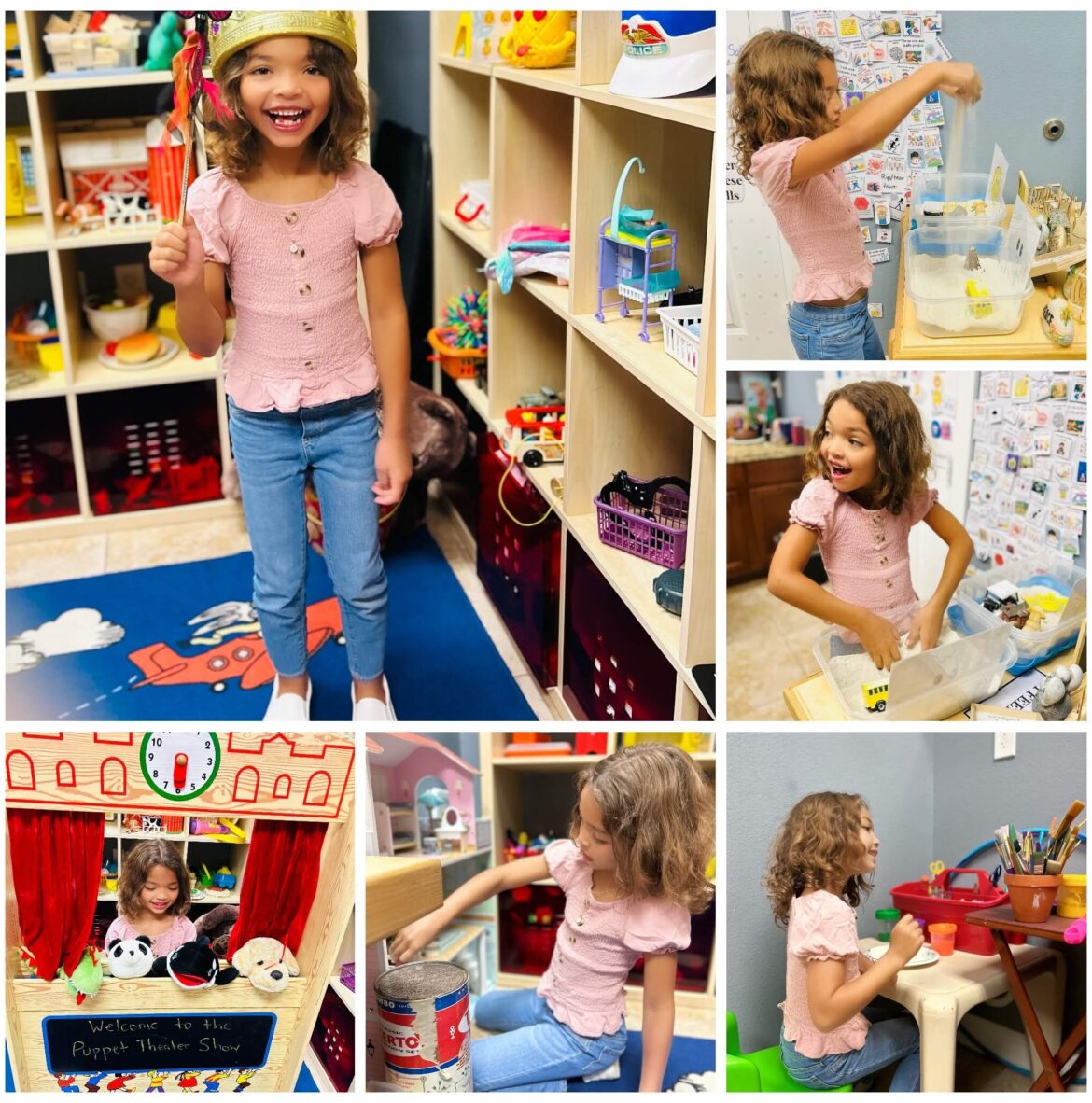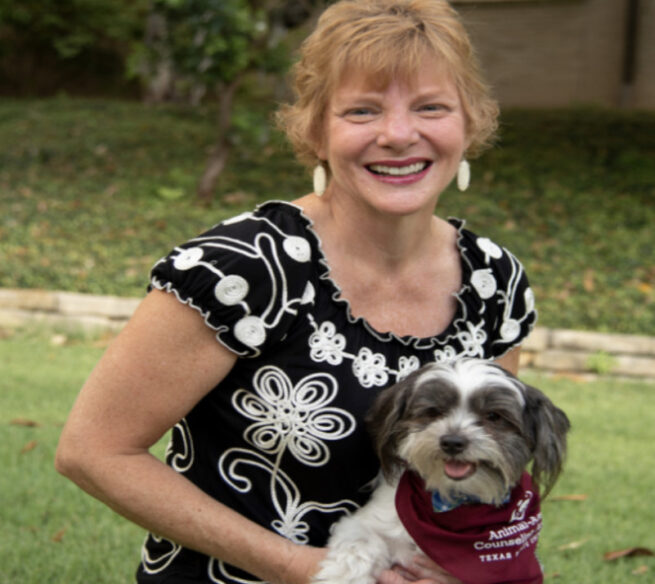Child & Play Therapy in The Woodlands TX

Play therapy is a method of meeting and responding to the mental health needs of children and is extensively acknowledged by experts as an effective and suitable intervention in dealing with children's brain development
We strategically use play therapy to help children express what is troubling them when they are unable to communicate their thoughts and feelings with words.
The toys are the child’s words, and the play is the child’s language. Play Therapy Provides a safe psychological distance from their problems and allows expression of thoughts and feelings appropriate to the child’s development.
Play therapy for your preschoolers or up until 12 years old, is a great option. During the process of helping your children, we will also provide parent counseling so you can feel confident of how to help.
WE are here to help and support you and your child(ren), we offer many different options for your loved ones, family, parenting and individual therapy for many different issues. You're probably wondering, does my child need therapy? Our qualified child therapist will assess your child, the situation and create a plan together.
Children are referred to play therapy to resolve behavioral problems such as:
•Emotional dysregulation'
•Acting out at school or in the home
•OCD
•Poor social skills
•ADHD
Through Play Therapy sessions, children can learn to:
•Better communicate with others
•Express feelings
•Modify behavior
•Develop problem-solving
•Stress Management
They are also referred to come in to work through family issues such as:
•Divorce
•Death
•Loss
•Abandonment issue
What does a play therapy session look like?
The main goals of each session, regardless of the child’s issue, are to help them regain their former level of functioning, enhance self-esteem and build the child’s coping resources. The use of toys enables the child to transfer their anxieties, fears, fantasies, and guilt to objects rather than people. While at the sessions, children are safe from their own feelings and reactions, because play enables children to distance themselves from traumatic experiences and events.
The therapist verbally reflects back to the child their behaviours, thoughts, and emotions. This helps validate the child’s inner experience and helps organize both their experiences and their emotions.
The use of toys enables children to transfer anxieties, fears, fantasies, and guilt to objects rather than people. In the process, children are safe from their own feelings and reactions because play enables children to distance themselves from traumatic experiences and events.
The therapist will verbally reflect back to the child his or her behaviours, thoughts, and emotions. This validates the child’s inner experience and helps organize both their experiences and their emotions. Play therapy is best suited to children two to twelve years of age.
Sometimes the child is given strategies to cope with difficulties they face in life and which they themselves cannot change— it can provide a more positive view of their life.
Our child/ teen therapist, Jenny Jacobs, support and assist clients to connect with their authentic self and learn to love, not hate, themselves. Also, behaviors will be evaluated that are not currently working for them. We utilize multiple therapy modalities based on the client’s personality and problem. The therapy modalities are all research-based and are showing success based on the particular problems and the client.
Definition of Therapy modalities used with Child and Teen Therapy
Sandtray Therapy
Sandtray therapy through creative expression, a person in therapy is able to manifest in sand the things they would otherwise not be able to vocalize or address in traditional therapy.
The therapist treats the person as whole and healed, knowing that the process of sand tray therapy allows the person to find the answers that are already within them.
Play Therapy
Play therapy is a powerful tool for addressing cognitive, behavioral and emotional challenges. Play is a natural process that builds trust, reduces anxieties, encourages open communication, fosters acceptable behaviors, and promotes creative thinking and problem solving. Play is a child’s language and toys are their words.
Solution Focused Therapy
As the name suggests, Solution Focused Brief Therapy (SFBT) is future-focused, goal-directed, and focuses on solutions, rather than on the problems that brought clients to seek therapy. Conversation is directed toward developing and achieving the client’s vision of solutions.
Choice Theory/Reality Theory
There is much emphasis on a person learning to develop a strong internal locus of control, and a strong sense of responsibility for one’s behavior. Reality therapy tends to be focused on the present, problem and solution oriented, and time limited. A main goal in reality therapy is to aid clients in gaining new perspective and techniques that will help them to manage challenges on their own.
Animal Assisted Counseling
Animal-assisted counseling (AAC) is a process in which a trained therapy animal works in partnership with a counselor to help clients resolve psychosocial challenges and achieve growth. AAC often involves using experiential and expressive techniques and interventions that include the therapy animal. Animal Assisted Counseling incorporates an animal into the counseling session with the client’s permission.
The animal provides comfort and support in a nonjudgmental manner. They can add joy and a playful attitude to any session. Animals help clients develop empathy and open up about challenging life experiences. They also contribute to physiological benefits such as decreased heart rate and lower blood pressure, which adds to a person’s overall health and well being.
At Therapy for Families Healing toward Wholeness Jenny Jacobs our teen & child therapist has a Therapy Dog named Oreo. Oreo and Jenny work together as a team to help clients of all ages grow and achieve their goals. Oreo is a small dog with a big heart that weighs 13 pounds. He is a graduate of the Texas State University Animal Assisted Counseling Academy. Before meeting Oreo, the client will be taught how to greet him and how to understand some of his nonverbal communication and basic commands so the experience is positive for everyone.
Frequently Asked Questions
What makes play therapy effective for children?
Play therapy allows children to express themselves through play, which is their natural way of communicating and processing emotions.
Can play therapy help children who’ve experienced trauma?
Yes, play therapy provides a safe space for children to process trauma and develop coping skills at their developmental level.
What modalities are integrated into play therapy?
Attachment-based techniques to strengthen family connections.
How do therapists choose the activities for play therapy?
Activities are tailored to the child’s needs, age, and presenting challenges to promote emotional expression and healing.
Can play therapy help with behavioral issues at school?
Yes, play therapy can address underlying emotional concerns contributing to behavioral challenges.

If You are Interested in In-Person or Online Sessions with our experience child & teen therapy near Houston at the Woodlands office, contact us today!
Come visit us in our in person offices near Houston in League City, The Woodlands, & Midland.
therapyforfamiliestx@gmail.com
Make the Next Step!
1 Reach Out
Schedule a free consultation by texting or calling 281-819-0308 or filling out the form below to learn more about us, ask questions, and see if you would like to move forward!
2 Begin The Healing
Experience the healing experience of therapy, where you can show up just as you are knowing we will do the same!
3 Discover Meaningful Support & Goals on your Treatment Plan
Begin leaving a peaceful and fulfilling life you deserve- free from past pain & connecting with who you were meant to be!
